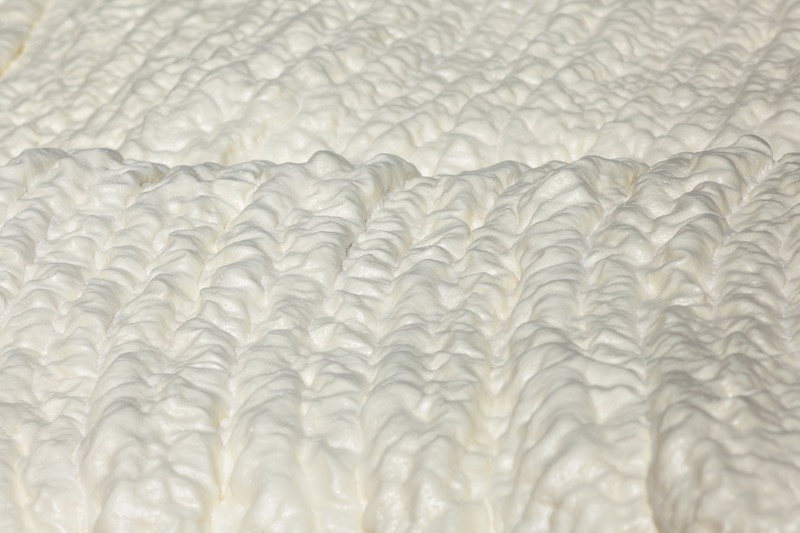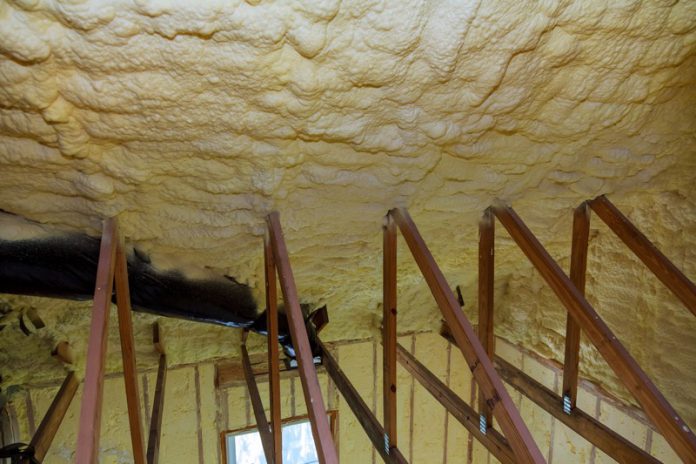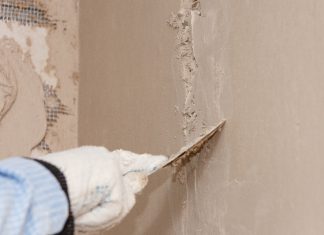Due to the nature of spray foam insulation, which is blowing into a cavity and filling it with small cells of gas, it can cause several issues if not fully installed properly. One such issue that has been more prevalent lately is the idea that if some foam does not get blown in between some studs or joists, then this open space could possibly catch fire.
It is possible for fires to start when there is too much open space in the walls and ceilings of homes, though not only would this require several factors to come together, it would also be very rare and perhaps even unheard of in most modern homes.
The main thing to determine when deciding if spray foam insulation could catch fire or not is to know what the foam is made of. There are several different types, some more flammable than others, but all of which should be handled with care during install and one must receive proper training before applying it at work.
When you think about spray foam insulation, what comes to mind? Spray foam is a product commonly used by DIYers because it expands and hardens quickly. The product itself is quite flammable, so precautions need to be taken while applying the product.
First of all, a quick overview of how can spray foam insulation catch fire:
The product itself is flammable and highly combustible. If the product is applied incorrectly, it can cause a fire hazard – like any other flammable petrochemical product. To reduce this risk of potential fire, some users apply sealing gels before they spray on the foam insulation. This step helps to prevent any fire hazards as it will either slow or prevent the flame from spreading.
In general, spray foam insulation is known as a stuffy and hard-to-breathe material. But now, it is also found as a potential fire hazard. The reason that this product can catch fire easily is that the flame retardants used in the product are not enough to withstand a small spark or a short circuit.
The polyurethane spray that is released during the application process heats up badly. When the heat gets too high, it can cause spontaneous combustion.
When these materials are installed, they have to be protected by a non-combustible material such as drywall or sheetrock or plasterboard. This problem has been reported in Australia, where their buildings are made from lightweight steel. Their insulation is made from a polyisocyanurate foam that catches fire easily, and the same happens to the buildings.
One of the major manufacturers of spray insulation, Titan, has stated that their product does not contain any petroleum products. This means it is safe to use in homes where there are kids because petroleum causes serious health problems. But this company did not confirm if they have added flame retardants or completely eliminated them from their products.
It is best to ask for samples of the products before buying them. This way, you can check if they smell bad or have a clear and not cloudy look because these are signs that they contain volatile organic compounds (VOCs) and other harmful chemicals.
Spontaneous combustion is very serious, especially when it involves houses, buildings and malls. This is why it is important to consider this threat seriously because it can lead to a terrible disaster, just like what happened with West Edmonton Mall.

When can spray foam insulation catch fire?
If you apply too much of the product and it flicks onto an ignition source, such as a pilot light or gas stove – it could cause a fire. This risk is reduced if sealing gels are applied first. If you do not apply the product correctly and it has too much oxygen, this could also cause a fire.
How to prevent spray foam insulation from catching fire?
The most common way to prevent any potential problems is through the proper application of the product. Always ensure that the proper safety equipment is worn during application – such as protective eyewear. Ensure that you are applying the product in a well-ventilated area. Also, thin layers of foam should be used instead of one thick layer; this helps to reduce any excess flammable vapours.
Conclusively, it is important to use proper precautions if you plan on using spray foam insulation. It can catch fire if not applied correctly, such as using too much product and having an ignition source. To avoid any problems like this, always ensure that you have protective eyewear while applying the insulation, and use a respirator mask if needed. Also, consider alternative chemicals if flammability is a major concern for you.














